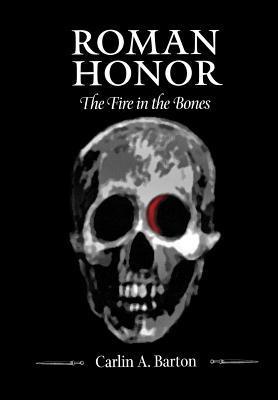From last week’s blog post, Bret Devereaux reviews a book by a former instructor from his undergraduate days, documenting Roman values and attitudes and how understanding their views of themselves helps put their actions into context:
I studied under Barton as an undergraduate at the University of Massachusetts at Amherst, but only looped back around to fully read her book on Roman honor during my Ph.D studies. This is a book about Roman culture and the Roman worldview – or more correctly the way the Romans view themselves and more crucially their innermost selves. This is an important exercise for the student of history, because, as L.P. Hartley famously put it, “The past is a foreign country; they do things differently there”. And so part of what the historian aims to do is not merely know what happened, but in order to understand why it happened, to be able to get into the minds of those people in the past, doing things differently. To put another way: we must also understand the vibes. This is a book about some serious Roman vibes.
The focus of Barton’s book, of course, is the Roman concept of honor and the whole constellation of ideas and concepts that circle around it (virtus, pudor and so on). For Barton, the Roman lived for the discrimen or certamen – that moment of testing and decision for which we have so many well-worn phrases (“sorting the wheat from the chaff”, “separating the men and the boys” and so on).1 It is in that moment that the Roman is, in a sense, most alive, propelled forward by virtus, guided by the other virtues, to pass the test and thereby win honor.
Two things, I think, distinguish Barton’s approach. The first is a focus on how these ideas make Romans feel and act; the man of honor shines, he is fiery, he glows. He stands tall, while others defer to him. The man filled with shame is the opposite. Understanding how real these ideas could be in Roman culture is in turn important for understanding how the Roman state – republic and empire – works, because it is predicated on those values, on the assumption that those not yet tested defer to those with honos who have been so tested and have shown their virtus. Second, the way Barton engages with the sources leaves a strong impression: the reader is bombarded with quotations (translated in the text, original in the footnotes) where the Romans can speak themselves about their values. And goodness do the Romans ever speak for themselves – almost never one example but half a dozen or more.
That strength can also be a weakness: to get that many references, Barton has to cast a wide net, especially chronologically and it isn’t unusual to see different examples for a point covering centuries, for instance from Plautus (late 3rd cent. BC) to Seneca (mid-late 1st cent. AD) in the same paragraph. That somewhat weakens the book’s ability to address chronological change, though Barton does work a bit of that chronology back in some of the later chapters. That said, Barton’s conception remains rooted with the bulk of her sources in the Late Republic (c. 133-31 BC) and while she stretches beyond this and notes some changes, this is fundamentally not a chronologically focused work. On the upside, the book is printed with footnotes (often taking up half a page or more!) with both original text for the translations and other useful notes, so for the student a trip from Barton’s prose to the original sources is quick and often quite fruitful.
Barton’s prose is very readable. As someone who sat in her classes, I can hear her lecture voice in the pages – she is well-known among the students as a passionate lecturer (now retired) who would shout and gesture, jump up and down and even get a bit misty-eyed at the fall of the Gracchi. The passion, I think, comes through in the book as well, to its benefit and that’s important, because this is fundamentally about things the Romans themselves were passionate about. I will also note, I think this book combines well with J.E. Lendon’s Empire of Honor (somewhat harder to obtain) to give a the fullest picture of honor in Roman affairs. But for someone looking to understand how the Romans thought about their own inner-lives and emotions, Roman Honor is, I think, the place to start.
1. One thing that’s striking: whereas the Greek equivalent, the agon is a contest against another, the Roman discrimen is a test against any sort of challenge or hardship. Greek arete (“excellence”) tends to be comparative in nature: the best, the strongest, the fastest and so on, whereas the Roman equivalents are less inherently comparative. Virtus is not zero-sum. That doesn’t mean the Romans aren’t competitive, but it is, I think, a subtle but real difference in ethos (especially aristocratic ethos).




